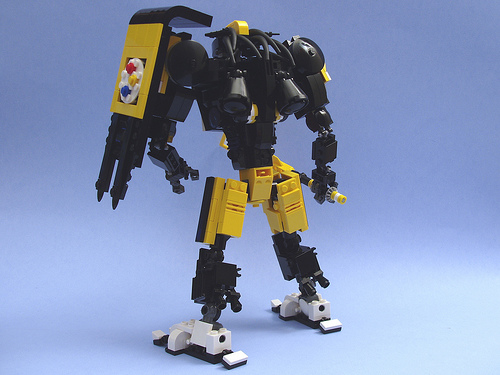A few weekends ago, my friends invited me to go with them to Portland’s Alberta Park to see some Bike Polo matches being played. I was intrigued, having never seen it played live, and decided to go with them. It proved to be more than just spectacle, however. I found a particular sub-culture, gathered around a relatively young sport in transition.
My friends and I arrived at the park and made our way down to where the players were. We unfurled a blanket on the bank that sits adjacent to the court. The heavy use of the area was evident by the receding grass. The court in front of me was just a simple fenced in rectangle of asphalt. Green wooden boards traced the bottom and rounded off the corners in order to keep the small rubber game ball from getting stuck in them. On each side of the rectangle, which was about the size of a tennis court, were small goals with white nets. Players pushed the ball from goal to goal with mallets and weaved in and out of each other like insects. Often I would cringe at what seemed like an obvious, oncoming collision only to witness the bikes break off from their path at the exact same time, much like a choreographed dance.
All of the players were very friendly and willing to talk about the sport. I told them that it seemed like there would be a lot of wrecks, they claimed that it was actually quite safe. They went over some of the physical components of the game, explaining that there are very few accidents because they tend to give each other room. This is about the time that I first hear of the group’s number one rule, often repeated with appropriate gravity, “Don’t be a jerk,” which is more a philosophy than a rule. It makes room for a finesse-oriented game and makes the sport more approachable. Despite the reassurances, a bit later, a man lounging on the bank shares a few gnarly stories, including one about a guy who broke his hand in several places while bracing for a fall and another guy who fell and gored himself on a handlebar.
A few players explained it to me more thoroughly later on. Altercations become second nature. An intimate relationship forms between the bicycle and its rider. Wrecks, for example, have less of an impact because riders can make better decisions about dodging, colliding, and even falling. Players become intimately aware of the components of their bikes as well. Experienced players are not only aware of what every tiny component on their bike is and how to tweak or replace it, but also attend to the vibrations they feel while riding to the degree that they can pinpoint an aberration and where on their bike to attend to it.
Self maintenance goes hand and hand with Bike Polo. Bike Polo has been a DIY sport since it started being played by bike messengers in Seattle 16 years ago. The first Bike Polo mallets were hand crafted by players from ski poles and PVC pipe, and many still are. Equipment still can’t be bought in brick and mortar stores, but these days actual Bike Polo equipment is available in online stores like Portland’s hecklersalley.com, where one can choose among a variety of mallets and heads along with a lot of other gear.
Bike Polo’s DIY culture leads to crowdsourcing. Innovations spread throughout the player community. Players with different skill sets help other players get out and play. For instance, Most players in Portland choose disc breaks over traditional double V’s. Break covers, developed from a need to protect the sensitive disc brake system from mallets, may be designed and fabricated by a player with those particular skills and made available to the community at large.
This tendency towards do-it-yourself and crowd sourcing and even the warm welcome my friends and I received are all part of a larger Bike Polo culture that now spreads throughout the world. One player who introduced himself as Eric was a ten year veteran, and he had just returned from a small Northwestern hard-court Bike Polo tournament the week before and was going to a much larger North American tournament the following week. He spoke about how he knew Bike Polo players from all over the world and how it was very much like a large community. Eric is a Portland transplant, and he said he would have never moved to a city without a Bike Polo presence.
Bike Polo players would very much like for Bike Polo’s popularity to increase and to become a spectator sport. New tournament rules are made each year to make Bike Polo a more exciting game to watch. 2014 was the seventh year that hard-court Bike Polo had a World Championship match; the match had an official, paid referee staff this year. By all accounts, Bike Polo is poised to be an emerging sport. Who knows, we may see hard court Bike Polo on ESPN or in the Olympics in the near future.
If you are curious about Bike Polo, do not hesitate to go to Alberta Park one Sunday and watch a game. More than likely you’ll end up on a bike trying it out like I did. The group is very hospitable and will even provide equipment so that you can play.
Add The Sports Daily to your Google News Feed!
